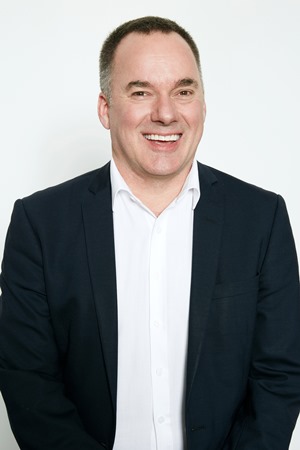Screen Australia CEO Graeme Mason says there's been a 'lifting of the veil' internationally around Aussie talent.
US, British and European sales agents, financiers and distributors are more focused on Australian talent and screen content now than in recent years, which will almost certainly result in a slew of deals in the coming months.
That’s Screen Australia CEO Graeme Mason’s upbeat assessment and prediction after numerous meetings with key international players at the Cannes Film Festival.
“We talked to a lot of British, European and American entities who were really across Australian content, much more than I have seen before,” he told IF.
“We have a lot of films that are looking to go into production in the last quarter of 2017 or the first quarter of 2018 which big sales companies, gap lenders, financiers and distributors are actively pursuing.
“There has been a sudden lifting of the veil in acknowledging the Australian talent in front of and behind the camera and the people responsible for getting content made.”
Mason credits Mel Gibson’s Hacksaw Ridge (which has grossed $US175.3 million worldwide, according to Box Office Mojo) and Garth Davis’ Lion ($US139.3 million) as key factors driving this upswing.
Managers and agents are keen to find the next Garth Davis and after Hacksaw Ridge they hope more overseas-based talent will be keen to return to Oz to make films, he said.
Some sales agents back up Mason’s confidence. “Films like Lion and Hacksaw show that locally made movies have a scale and emotional ambition that we have not seen from Oz for a while now,” says Cornerstone Films’ Mark Gooder, who is negotiating deals with a number of Australian producers.
According to Gooder, a former CEO of Icon and president of acquisitions at The Weinstein Company, the key is finding subjects with universal appeal that speaks to international moviegoers.
“I think almost all Oz films fall into the category of being ‘critically-driven’ when it comes to performance outside of Oz,” he said.
“I’ve noticed that the scale of the themes in some Oz material coming into the market is bolder and bigger than it has been. There are still plenty of kitchen sink/outback dramas and local comedies but there are a few more stories that really stand out now because they have a boldness of vision.
“It’s that boldness that makes them as relevant to the international marketplace as any film from the UK or US. The new market is about the bold, the unique and the original. The derivative or generic has very little value any more.
“The other really big factor is how many Australian actors and directors working on the world stage who are prepared to come home and be in a local movie. Their star power (in front or behind) is meaningful in an independent film but it has to be a match with the material and, for us, it’s the story that’s key. Also think we have more experienced producers than we ever did who understand what the market is looking for.”
Another factor which piques the interest of sales agents, gap lenders and financiers is the combination of huge soft money incentives from federal and state governments and regions, he said. The smaller the gap the more viable it is to close deals for two or three pre-sale territories to keep the financing model in place.
Arclight Films managing director Gary Hamilton said, “We saw solid sales and interest in all our films in Cannes. This is further proof that we are filling a gap in the marketplace with commercially viable titles that span most every genre and which buyers are looking for worldwide.”
Arclight’s slate includes Anthony Maras’ Hotel Mumbai, Greg McLean’s Jungle, Julian Fellowes’ The Chaperone, Paul Schrader’s First Reformed and Scott Christian Sava with Dean Lorey’s family animation film Animal Crackers.
Odin’s Eye Entertainment’s Michael Favelle takes a different view, observing, “I don’t think that the perception of Australian cinema abroad has changed per se; we have always been well regarded.
“I think it’s more about commercial English-language pictures remaining in high demand while the foreign-language and arthouse market continue to contract.”
Favelle reports strong sales for great white shark thriller Cage Dive (which will be rebranded as Cage Dive: Open Water in some territories, launching in mid-August), and for Luke Jurevicius’ animated fantasy Arkie, which has Shailene Woodley, Jai Courtney and Andrew Bachelor attached, with others to be added.
As proof of the high-quality projects that are proliferating in Australia, 11 films were submitted to Screen Australia’s last funding round, of which the agency would have liked to have invested in nine.
Mason said, “I’ve never seen so many great projects with real commercial prospects wanting to come to us. By commercial I mean the producers know who they are aiming at.”
The reality of course is that after government cuts that have reduced Screen Australia’s funding by $51.5 million since 2013, there is a cap on how many films the agency can fund and in view of the cap of $2 million on each film. Typically around 15 films are funded each year.
In the 2016-17 fiscal year a total of $72 million will be available to the screen sector, with a 5-6 per cent cut across all programs equating to about $4 million.
“One of the things I find encouraging is that if international money can come in at the level that we think is possible we could maintain the same level of films we’d like to make. So our job is to work with the sector to make that happen. But people have to remember this is a global business,” said Mason.



